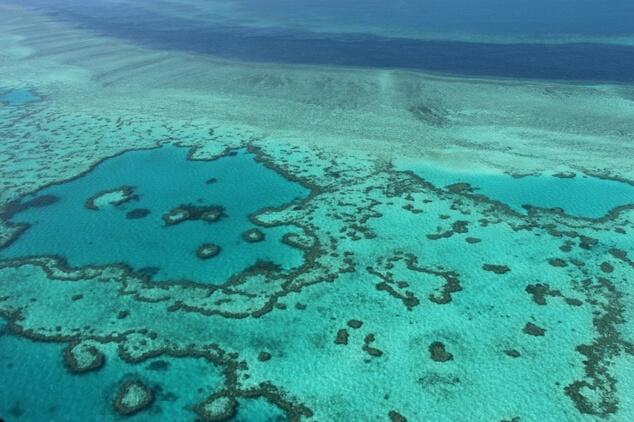Australia today admitted more needs to be done to protect the Great Barrier Reef from pollution after a government-backed report painted a bleak picture of the natural wonder.
The giant ecosystem is under pressure from farming run-off, development, the coral-eating crown-of-thorns starfish and the impacts of climate change, which saw mass a bleaching event this year that killed swathes of coral.
Canberra insists it is doing more than ever before to protect the reef, but its annual report into water quality, seagrass and coral gave it a “D” — which represents “poor” — for the fifth year in a row.
The reef receives run-off from 35 major catchments in an area larger than Japan, with sediment in the water reducing the light available to seagrass ecosystems and coral reefs, affecting coral settlement, growth and reproduction.
This ultimately hinders the reef’s ability to recover from the impacts of climate change such as bleaching and more intense extreme weather events.
Environment Minister Josh Frydenberg admitted more work needed to be done, but said progress was being made under the government’s Reef 2050 Plan to improve its health.
“This report card shows some real positives, but also some areas where we need to focus more effort,” he said of the study for the year to June 2015.
“Almost half the horticulture and grains land across the Great Barrier Reef catchments is already managed using best management practice systems, with more work needed in sugarcane and grazing management.”
Conservation group WWF said scoring “D” five years in a row was not good enough and more money was needed, with Australia due to report to UNESCO by December 1 on the progress being made to rescue the reef.
Australia last year narrowly avoided the United Nations Educational, Scientific and Cultural Organisation putting the reef on its endangered list.
“The scary thing is this latest fail was for the period before the mass bleaching event killed an estimated 22 percent of the reef’s coral,” said WWF Australia spokesman Sean Hoobin.
“The continuing poor scores are further evidence that the current programmes and spending on reef pollution fall far short of what’s required.”
The reef experienced an unprecedented bleaching earlier this year that saw much of it whiten and almost a quarter of corals die.
The government has committed more than Aus$2.0 billion (US$1.53 billion) to protect the reef over the next decade.
Steven Miles, minister for the Great Barrier Reef in Queensland state where it is located, admitted greater efforts were needed to reduce pollutant run-off.
“We know that everyone, not just farmers, needs to play their part,” he said.
“Moving forward, we will be working with councils, industry and communities to identify actions they can take to improve the quality of water flowing to the reef.”
Source: AFP











